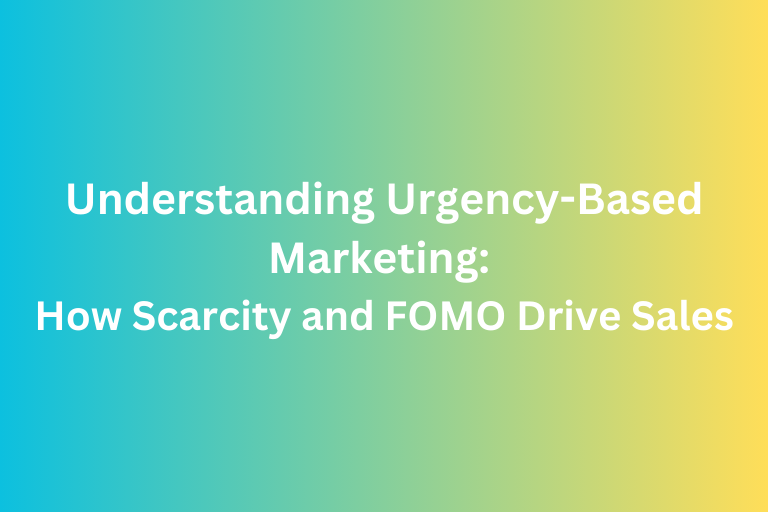What is Marketing?
Marketing is more than just a set of tactics for promoting a product or service. It is a strategic function that encompasses understanding and responding to customer needs, creating value, and fostering a connection between the business and its audience. At its core, marketing involves:
● Identifying Customer Needs: Conducting market research to understand what your customers want and need.
● Creating Value: Developing products or services that meet those needs effectively.
● Communicating Effectively: Crafting messages and campaigns that resonate with your target audience.
Marketing bridges the gap between what your business offers and what customers are looking for. It involves strategic thinking, creative execution, and ongoing analysis to align your efforts with customer expectations and market trends.
Why Marketing Matters
Marketing is essential because it:
● Connects You with Your Audience: It enables you to position your offerings in a way that addresses the specific needs and desires of your target market. Without marketing, you risk your product going unnoticed.
● Builds Relationships: Effective marketing helps build long-term relationships with customers by creating trust and delivering consistent value. It’s about engaging with customers beyond a single transaction.
● Drives Business Growth: A well-executed marketing strategy can significantly impact sales and revenue. It helps generate leads, convert prospects into customers, and drive repeat business.
Marketing is not a one-time activity but a continuous process of adaptation and improvement to meet evolving customer needs and market conditions.
Core Marketing Principles
The Marketing Mix: The 4 Ps
1. Product:
a. Define the product or service you are offering. Understand its features, benefits, and unique selling propositions (USPs). The product should solve a problem or fulfill a need for your target audience.
b. Consider aspects like design, quality, and brand. Ensure that the product stands out in the market and aligns with customer expectations.
2. Price:
a. Set a price that reflects the perceived value of your product. Consider factors such as cost, competition, and customer willingness to pay.
b. Pricing strategies can include discounts, bundling, or premium pricing. The right price point can attract the right customers and drive sales.
3. Place:
a. Determine where and how your product will be distributed. This could be through physical retail locations, online platforms, or a combination of both.
b. Ensure your product is available in places where your target audience shops and make the purchasing process as convenient as possible.
4. Promotion:
a. Develop a promotional strategy to communicate your product’s value to your target audience. This can include advertising, public relations, content marketing, and social media.
b. Craft compelling messages and choose the right channels to reach your audience effectively. Promotion should highlight the benefits and USPs of your product.
Market Segmentation
Market segmentation involves dividing your broader market into smaller, more manageable segments based on various criteria:
● Demographics: Factors such as age, gender, income, education, and occupation that define your audience.
● Psychographics: Lifestyle, values, interests, and attitudes that influence consumer behavior and preferences.
● Geographic: Location-based criteria, including region, city, or neighborhood, which can affect purchasing decisions.
● Behavioral: Purchase behavior, brand loyalty, and user status, such as first-time or repeat customers.
Segmenting your market allows you to tailor your marketing efforts to specific groups, improving the relevance and effectiveness of your campaigns.
Crafting a Marketing Plan
Essential Elements
A comprehensive marketing plan includes several key components:
● Research: Conduct thorough research to understand market trends, customer preferences, and competitive landscape. This helps inform your strategies and decisions.
● Objectives: Set clear, measurable goals for what you want to achieve with your marketing efforts. Objectives should be specific, achievable, and aligned with your overall business goals.
● Strategies: Outline the approaches you will take to reach your objectives. This includes defining your marketing mix, promotional tactics, and resource allocation.
● Budget: Allocate your budget to various marketing activities based on their potential impact and cost. Ensure that your spending aligns with your strategic priorities.
Execution and Evaluation
Turning your plan into action involves:
● Implementing Tactics: Execute your marketing strategies according to the plan. Coordinate efforts across different channels and teams.
● Tracking Performance: Monitor key performance indicators (KPIs) to assess the effectiveness of your marketing activities. Use analytics tools to gather data and insights.
● Optimizing: Based on performance data, make adjustments to improve your strategies. Continuous optimization helps enhance results and adapt to changing market conditions.
Measuring Success
Key Metrics
Measuring the success of your marketing efforts involves tracking various metrics:
● Conversion Rates: Assess how well your marketing efforts are turning leads into customers. High conversion rates indicate effective messaging and targeting.
● Customer Acquisition Cost: Calculate the cost associated with acquiring each new customer. Understanding this metric helps you evaluate the efficiency of your marketing spend.
Data-Driven Decisions
Use data to guide your decisions:
● Analyze Results: Regularly review performance data to understand what’s working and what’s not. Look for trends and patterns to inform future strategies.
● Adjust Strategies: Refine your marketing approach based on insights from data analysis. Adapting strategies helps improve effectiveness and achieve better results.
Conclusion
By mastering these marketing fundamentals, you’ll be equipped to create effective strategies and drive your business forward. Dive into these principles, apply them to your own marketing efforts, and watch as your strategies start to deliver results.
Ready to enhance your marketing strategy? Contact us for a free consultation or schedule a meeting with our experts. Let’s work together to take your marketing efforts to the next level and achieve your business goals.











